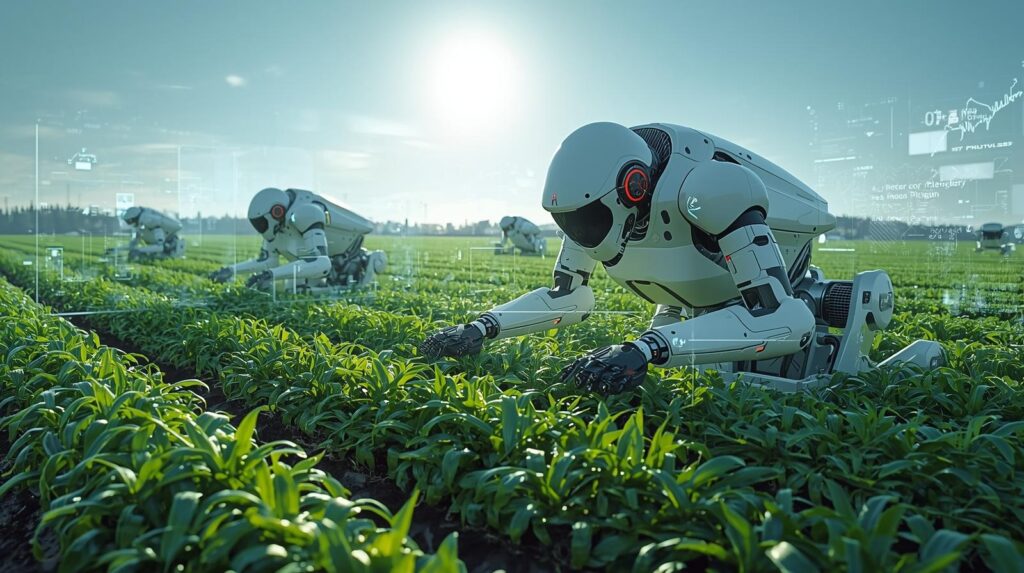Artificial Intelligence (AI) is redefining the agriculture landscape by transforming traditional farming into an intelligent, automated, and highly efficient system. As the global population continues to grow and the pressure on food production intensifies, AI technologies have become indispensable tools for modern agriculture. From precision farming and predictive analytics to autonomous machinery and supply chain optimization, AI is unlocking new possibilities that were unimaginable a decade ago. The agriculture market is now on the brink of a digital revolution that promises higher productivity, sustainability, and resilience.
Download PDF Brochure @ https://www.marketsandmarkets.com/pdfdownloadNew.asp?id=159957009

One of the most important growth drivers behind AI adoption in agriculture is the rising need to produce more food with limited resources. With declining arable land, unpredictable weather conditions, and labor shortages, farmers are turning to AI-powered systems to optimize every aspect of cultivation. Precision agriculture, powered by machine learning and computer vision, allows farmers to monitor crop health, soil conditions, and environmental variables with unmatched accuracy. Sensors, drones, and satellite imaging generate real-time data that AI algorithms analyze to detect early signs of disease, pest invasion, or nutrient deficiencies. This enables farmers to take timely corrective action, reduce crop losses, and maximize yields while minimizing input wastage.
Predictive analytics is another breakthrough innovation reshaping the agriculture market. AI-driven predictive models can analyze historical data, current weather conditions, and soil behavior to estimate yield performance, forecast market demand, and determine the best planting and harvesting schedules. Such foresight empowers farmers to make strategic decisions that enhance productivity and profitability. Whether it’s identifying the most suitable crop varieties or optimizing irrigation cycles, predictive analytics provides a level of decision-making intelligence that significantly reduces uncertainty in farming operations.
AI is also fueling major advancements in farm automation. Autonomous tractors, robotic harvesters, drones for field surveillance, and automated irrigation systems are revolutionizing agricultural processes by reducing dependence on manual labor and improving operational efficiency. These smart machines use AI algorithms to navigate fields, identify crops, detect weeds, and perform critical tasks with precision. By automating labor-intensive activities such as planting, weeding, and spraying, AI-powered robotics not only boost productivity but also help farmers address the challenges posed by labor shortages and rising operational costs.
Livestock farming is experiencing its own transformation driven by AI-enabled innovations. AI-powered monitoring systems track animal health, behavior, and feed intake through sensors, cameras, and wearable devices. These tools can detect early signs of illness, stress, or reproductive cycles, enabling timely veterinary intervention and improved herd management. Automated milking robots, smart feeding systems, and real-time analytics platforms ensure optimal livestock care while enhancing milk yield, meat quality, and overall efficiency. As consumer demand for high-quality, ethically produced livestock products increases, AI-driven systems offer transparency and consistency in production.
Another critical area where AI is making a significant impact is climate-smart agriculture. As climate change introduces increasing uncertainty into farming, AI-based environmental models are helping farmers adapt by providing accurate weather forecasts, extreme event predictions, and climate impact assessments. These insights support long-term planning and help farmers adopt sustainable practices such as efficient water management, optimized fertilizer use, and reduced greenhouse gas emissions. AI is enabling smarter responses to climate challenges, making agriculture more resilient in the face of global environmental change.
The agricultural supply chain is also benefiting from AI-driven automation and analytics. Post-harvest processes such as sorting, grading, packaging, and storage are now being automated using AI-based systems that ensure consistency, reduce food waste, and enhance product quality. AI-powered logistics platforms optimize transportation routes, predict shelf life, and maintain cold chain integrity. Through blockchain combined with AI, food traceability has reached new levels of transparency, allowing consumers to track a product’s journey from farm to plate. This increased visibility builds trust and enhances food safety across global markets.
The AI in agriculture market presents enormous opportunities for innovation and growth. Governments and private sectors are investing heavily in digital farming infrastructure, rural connectivity, and training programs to accelerate AI adoption. As affordable AI solutions become more accessible, small and medium-scale farmers can also leverage the benefits of data-driven farming. Startups are emerging with next-generation tools such as AI-powered seed selection, automated equipment, drone analytics, smart greenhouses, and crop management platforms tailored for various farming needs. These innovations are creating new business models in agri-tech and driving significant economic growth.